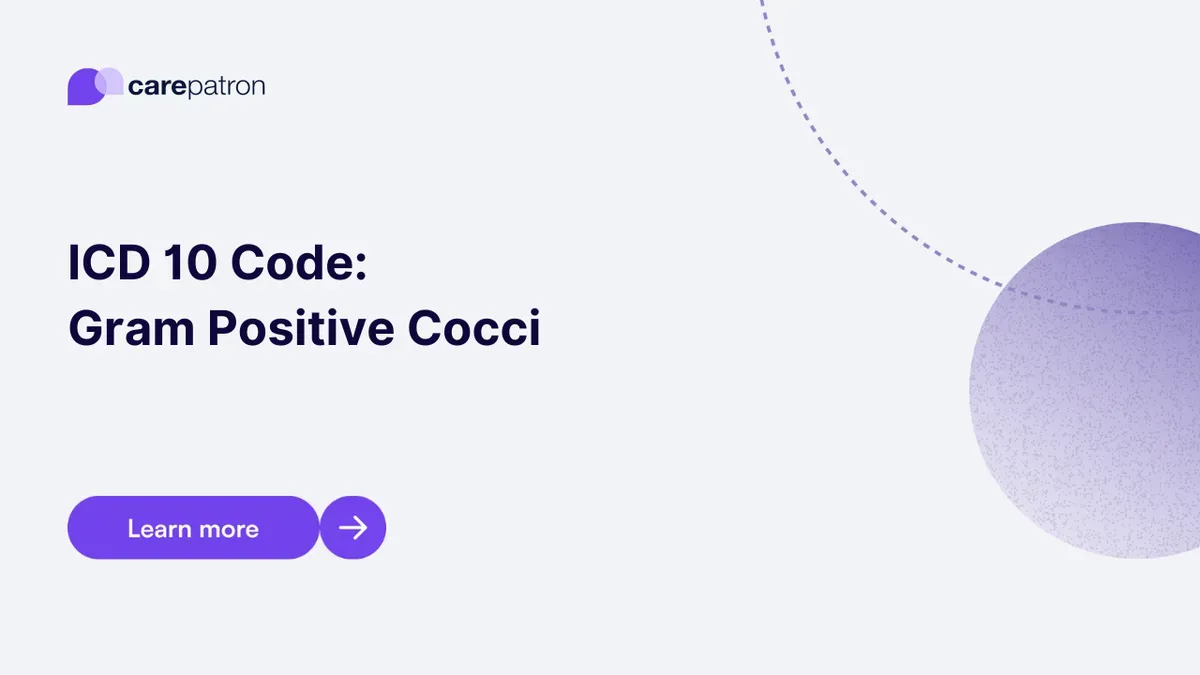
Gram Positive Cocci ICD-10-CM Codes
Explore ICD-10-CM codes for infections caused by gram-positive cocci in 2023. Learn about common codes, billable statuses, and gain clinical insights in this comprehensive guide.
Use Code
EHR and practice management software
Get started for free
*No credit card required
Free
$0/usd
Unlimited clients
Telehealth
1GB of storage
Client portal text
Automated billing and online payments
